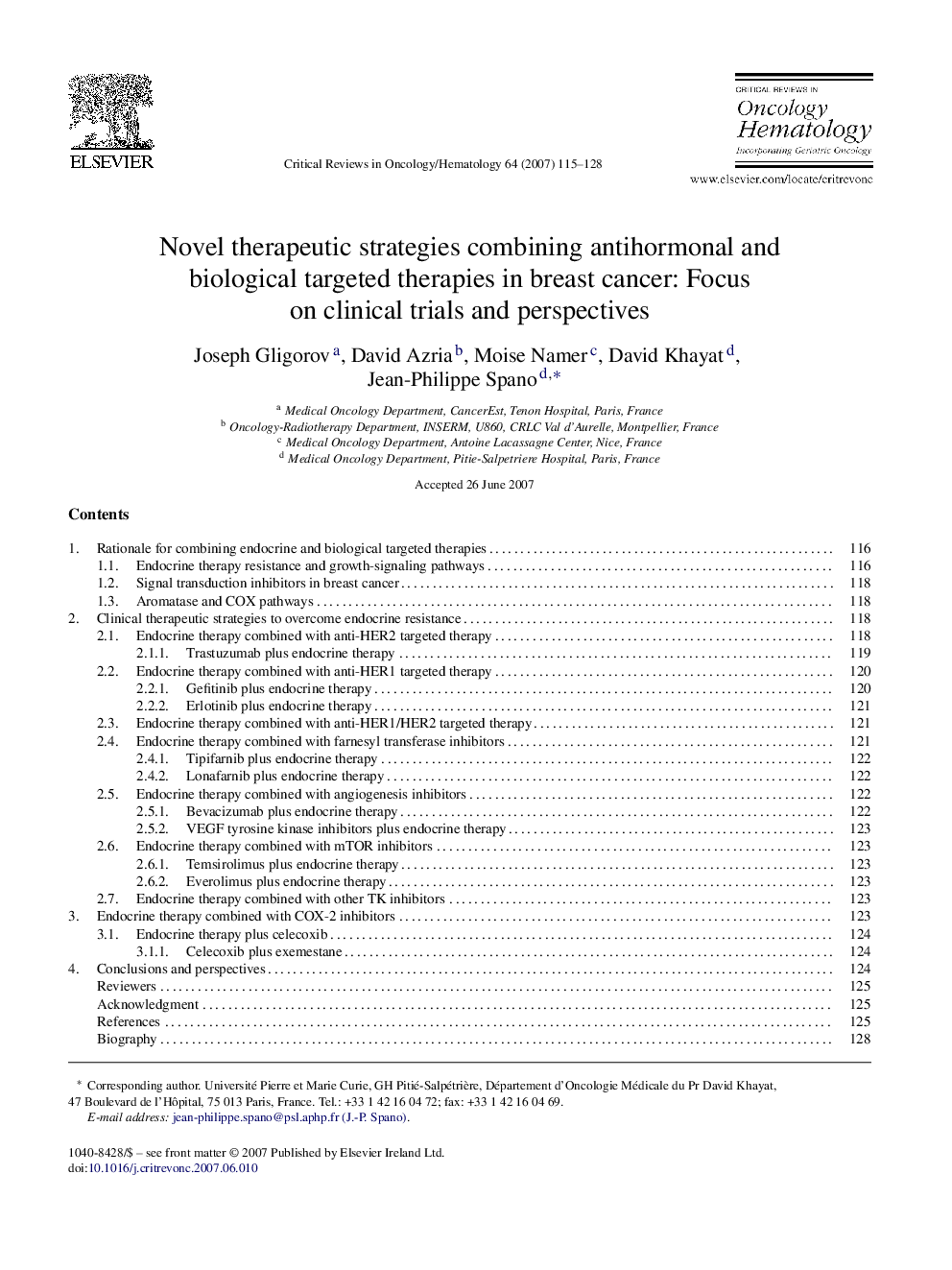| Article ID | Journal | Published Year | Pages | File Type |
|---|---|---|---|---|
| 3329898 | Critical Reviews in Oncology/Hematology | 2007 | 14 Pages |
Several models have been proposed to explain the mechanisms of endocrine resistance including aberrant growth-signaling pathways, and have led to the rational design of studies combining hormonotherapy with signal transduction inhibitors (STI) in advanced breast cancer. This article reviews the current status of these clinical trials. Preliminary results from the randomized controlled trials are rather disappointing. The mTOR inhibitor temsirolimus and the farnesyl transferase inhibitor tipifarnib combined with letrozole did not show any benefit compared to letrozole alone. As neoadjuvant therapy, gefinitib did not enhance the response rate induced by anastrozole. Interesting results were obtained with exemestane combined to celecoxib but should be further explored with adequate cardiac monitoring. Trastuzumab combined with anastrozole was more effective than anastrozole in terms of response rate and progression-free survival but not survival. Several controlled trials as first- or second-line therapy have started recently and over the next few years we should learn whether this approach will provide significant gains in efficacy.
